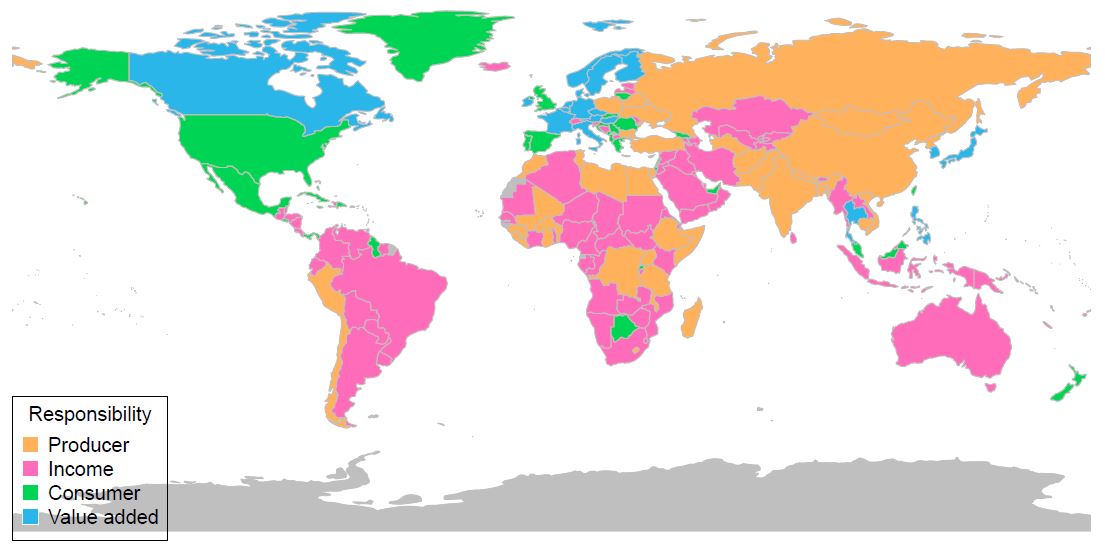Who should be made responsible for environmental impacts?
In the context of international environmental policy, the issue of how to allocate the responsibility for the creation of environmental pressures and impacts by different actors along global supply chains is highly important. In FINEPRINT Work Stream 2, we further develop global trade models, to which different allocation approaches can be applied.
So far, three main approaches to allocate responsibility have been discussed in the literature. The production-based responsibility (also producer responsibility or territorial approach) accounts for environmental pressures caused by economic processes within a country’s territory. In the consumption-based responsibility (also upstream or consumer responsibility or consumer footprint), environmental pressures generated at different stages of the supply chain to produce final products are allocated to final demand. In the income-based responsibility approach (also downstream responsibility), environmental responsibility is allocated according to the income generated by payments to the owners of the factors of production.
A new approach to allocate responsibility according to created value added
In this paper, we present a new approach to allocate environmental responsibility to the participating sectors and countries called ‘value added-based responsibility’. This metric allocates total environmental pressures occurring along international supply chains to the participating sectors and countries according to the share of value added they generate within that specific supply chain. The rationale behind this new approach is that mitigation responsibilities should be equally shared among actors according to their share in the generated benefits (wages and profits), as every company’s activities and related profits are closely interlinked with, and dependent on, other businesses’ activities along the supply chain.
We show that – due to their position in global value chains – certain sectors (e.g. services) and countries (e.g. Germany) receive significantly greater responsibility compared to other allocation approaches. This adds new perspectives to the discussions regarding a fair distribution of mitigation costs among nations, companies and consumers.



